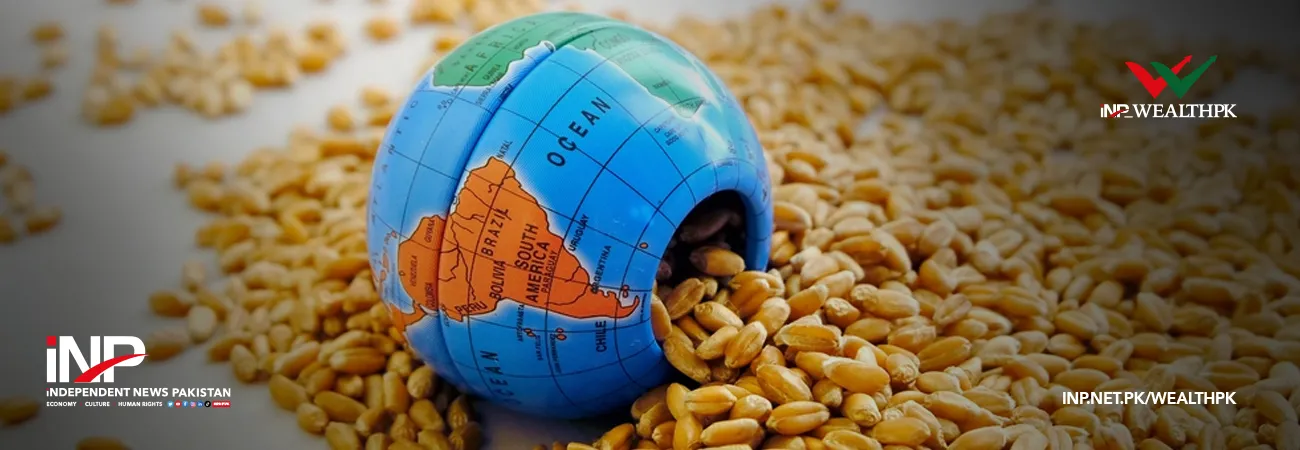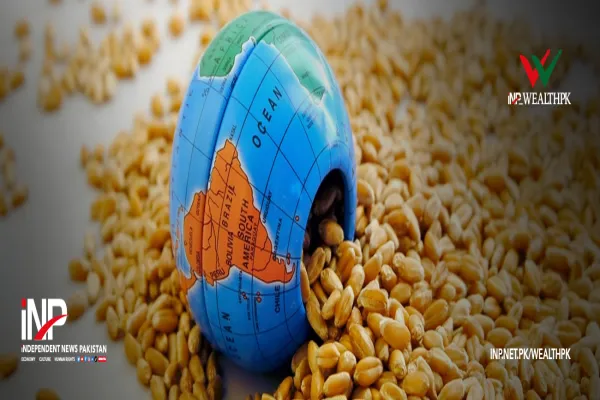i INP-WEALTHPK
Muhammad Saleem
Recent devastating floods have destroyed crops worth billions of rupees across Pakistan, underscoring the need for devising a strategy to prevent future climate risks, and protect farmers, crops, homes, and livestock, opine experts while talking to Wealth Pakistan.

Agricultural economist Dr. Muhammad Ishfaq said the scale of damage to agriculture is enormous, and there’s a need to avoid red tape and make speedy arrangements to ensure food supply. He said the floods swept through the crops, homes, and livestock, causing losses worth billions of rupees, and exposing the country to shortages of staple foods.
“This situation could ultimately shake Pakistan’s fragile economy and leave farmers with little opportunity to earn income immediately. Rice, cotton, and other crops have been destroyed in various districts this year. Preliminary estimates, reported by the media, suggest that thousands of acres of farmland have been affected. However, the actual extent of damage will become clear once government teams submit their reports in the coming days,” he added.
“This is not just a local issue – it threatens Pakistan’s overall economy, since agriculture contributes about 20% to the GDP. Farmers and their families are enduring immense hardship. The millers are worried about the availability of cotton, and the traders are scrambling to arrange essential food items,” he noted.
Dr. Zulfiqar Ali, Vice Chancellor of the University of Agriculture Faisalabad, told Wealth Pakistan that climate change is severely affecting the country, requiring coordinated efforts to address the issues. This year, he said, the flood inflicted colossal losses on the entire nation, particularly on farming communities. However, we must avoid such catastrophic situations in the future through proper management, he added.
For flood management, plans should be developed using historical satellite data to divert water and minimise future losses. He said the current situation of farmers is dire, although the government is providing full support. However, he suggested that a strategy should be devised to prevent climate-change-related issues in the future, so that we can easily protect farmers, crops, homes, and livestock.
He emphasized that these issues cannot be solved in a day or a week; rather, a dedicated study of at least one year is required to prepare plans, which can later be finalized through consultative sessions. Dr. Ali noted that work cannot proceed without an interconnected web and data system. This is a unique situation, as the rainfall patterns in the country are rare and unusual. Despite disaster management challenges, national interests and long-term planning must remain a priority.
The world is actively addressing issues related to food security and the transformation of agri-food systems. This is not the responsibility of the agriculture or food department alone; it requires a coordinated effort from the entire government as well. Experience shows that only practical actions can solve problems and achieve the desired results. Field visits and research by experts have also demonstrated that practical monitoring is crucial, he added.
“Without implementing practical measures, we cannot stop climate change from affecting Pakistan’s economy, food supply, and farmers’ livelihoods in the future,” he emphasized.
Credit: INP-WealthPk








